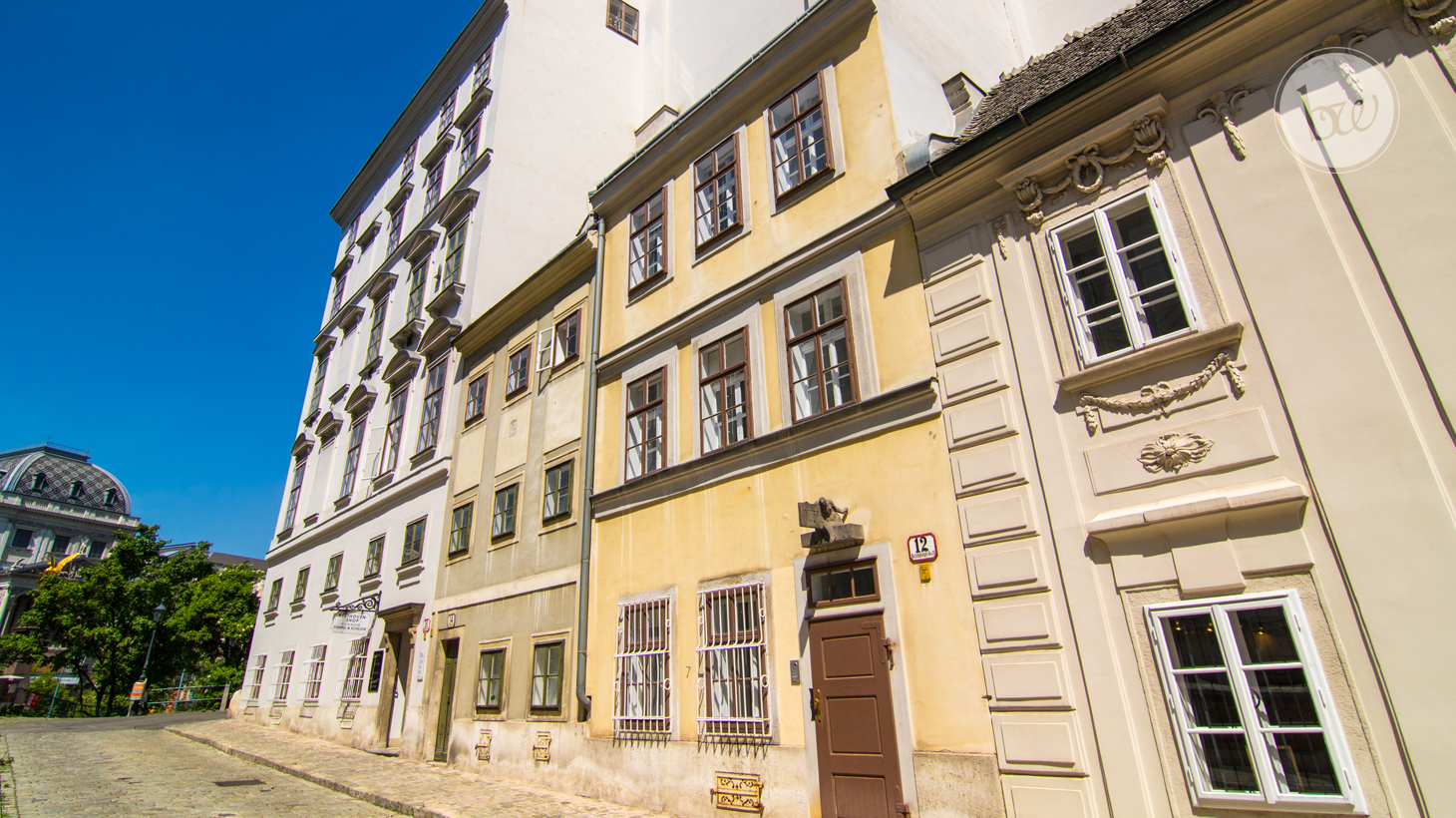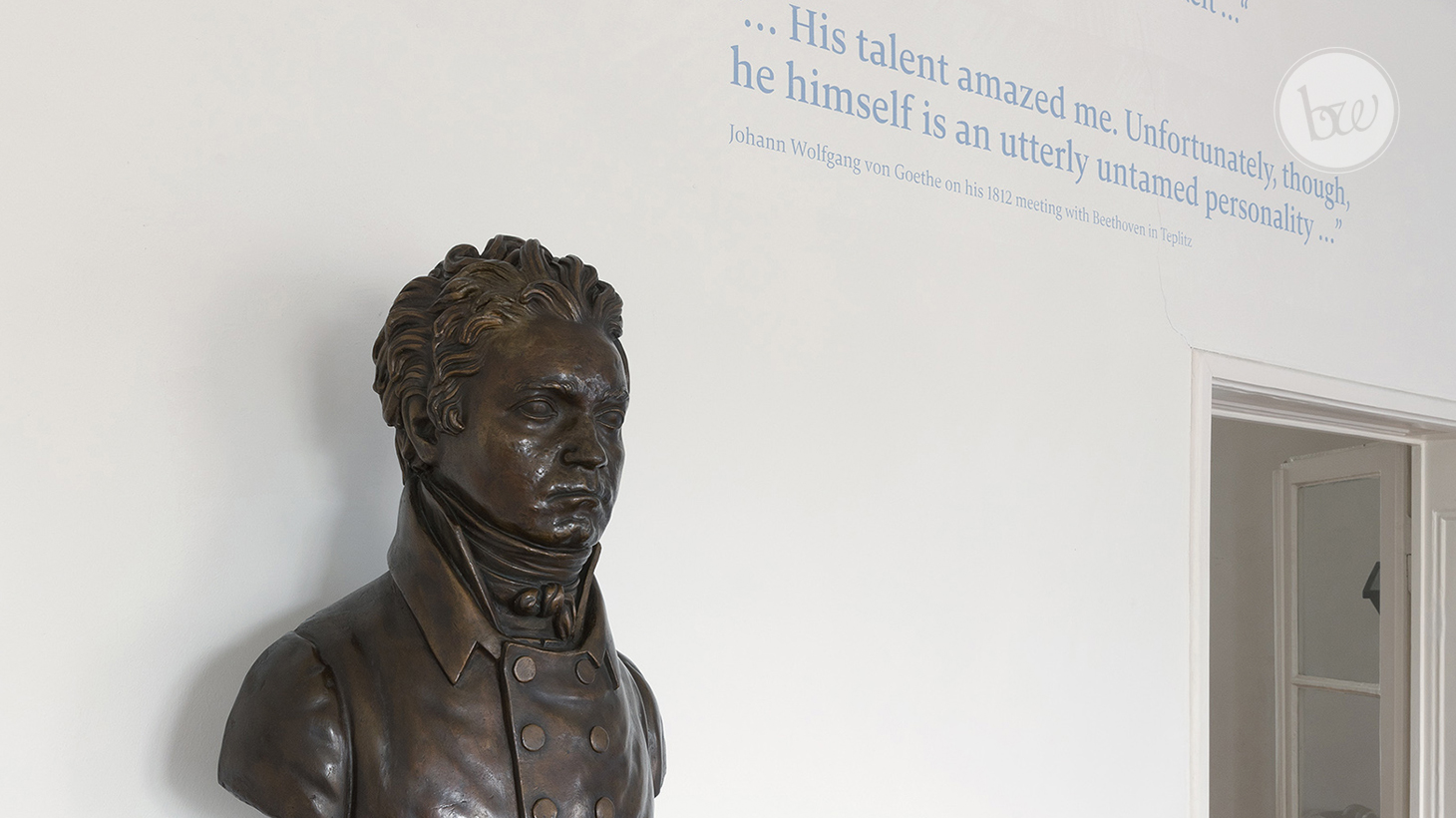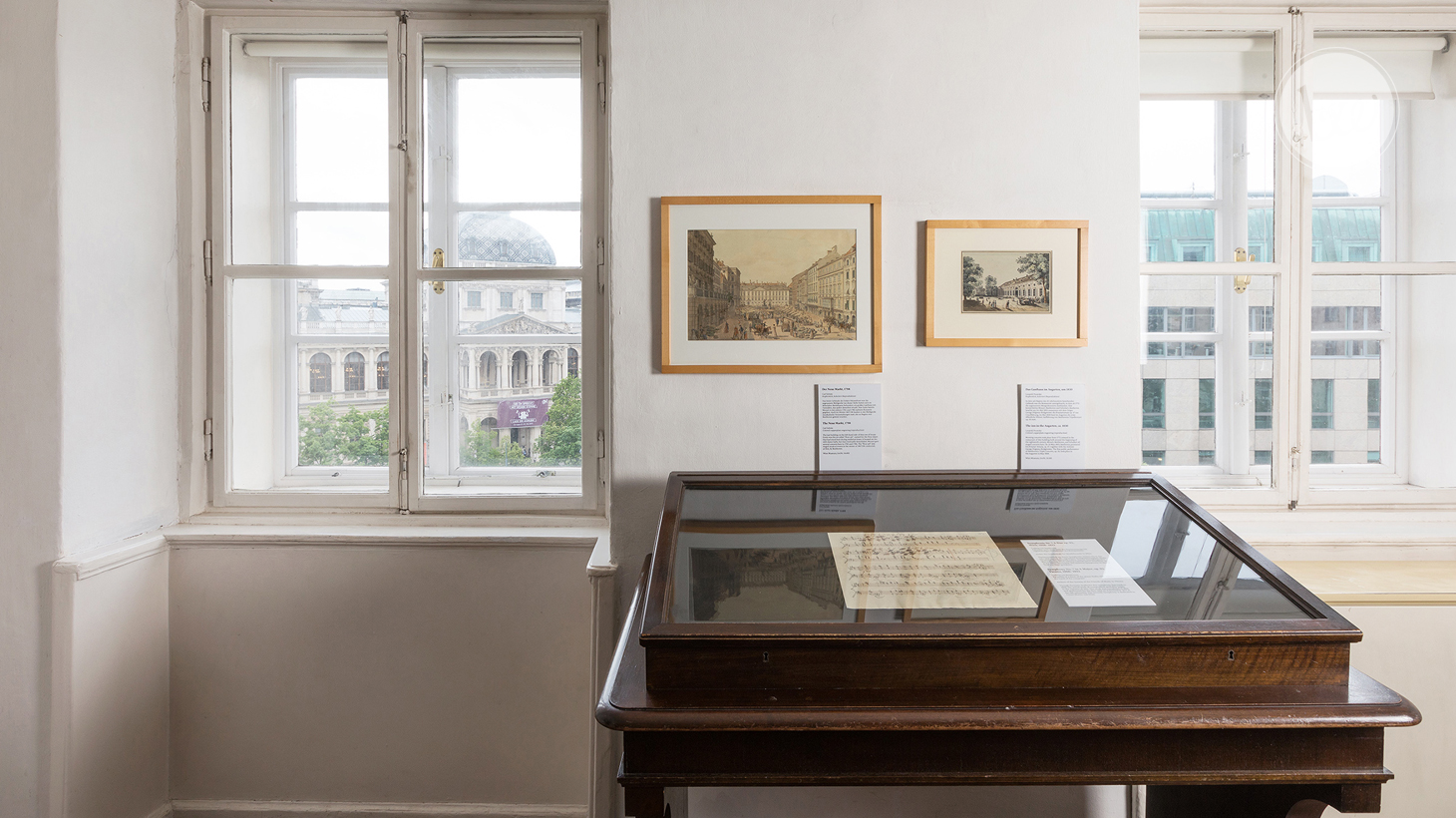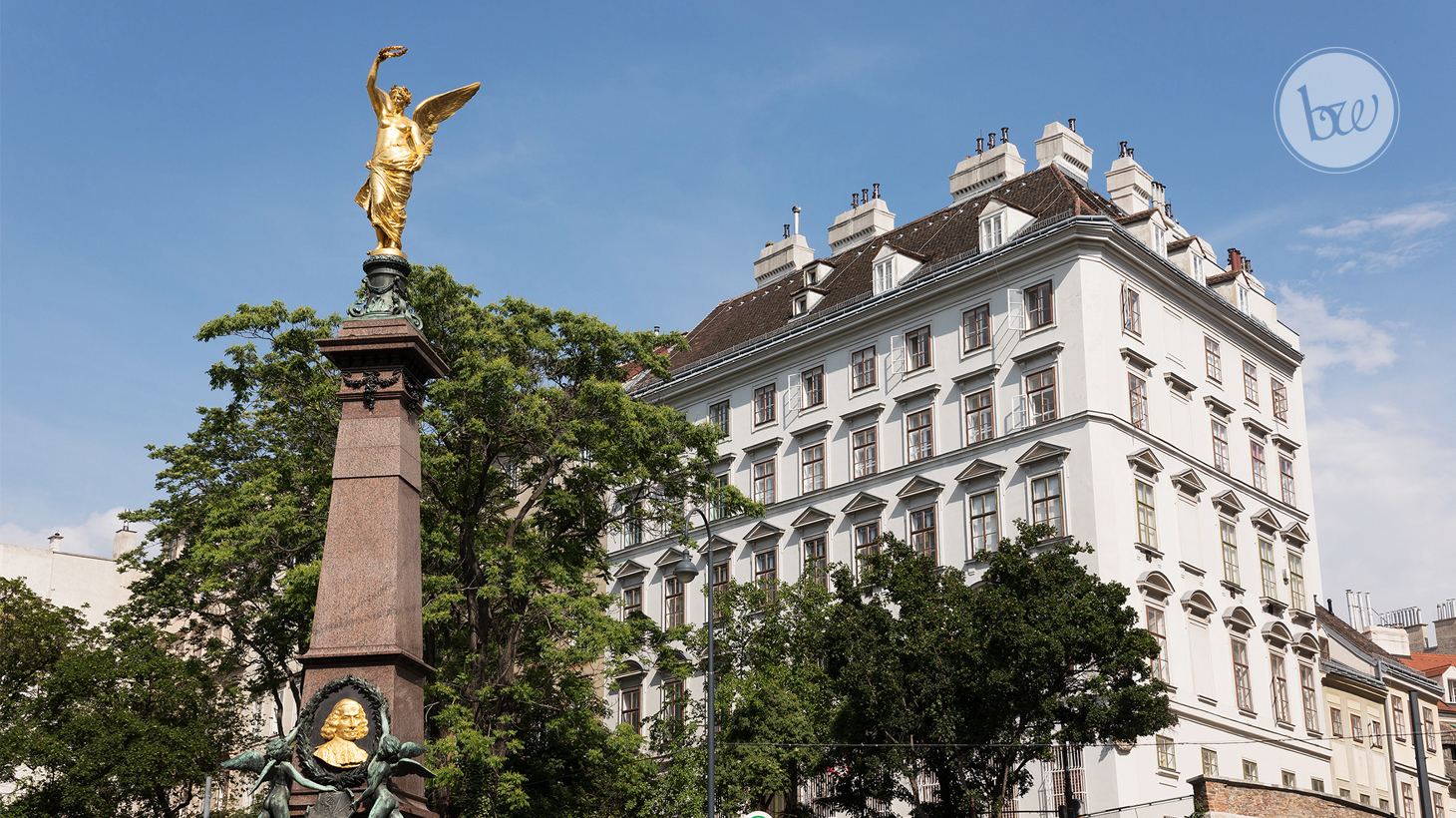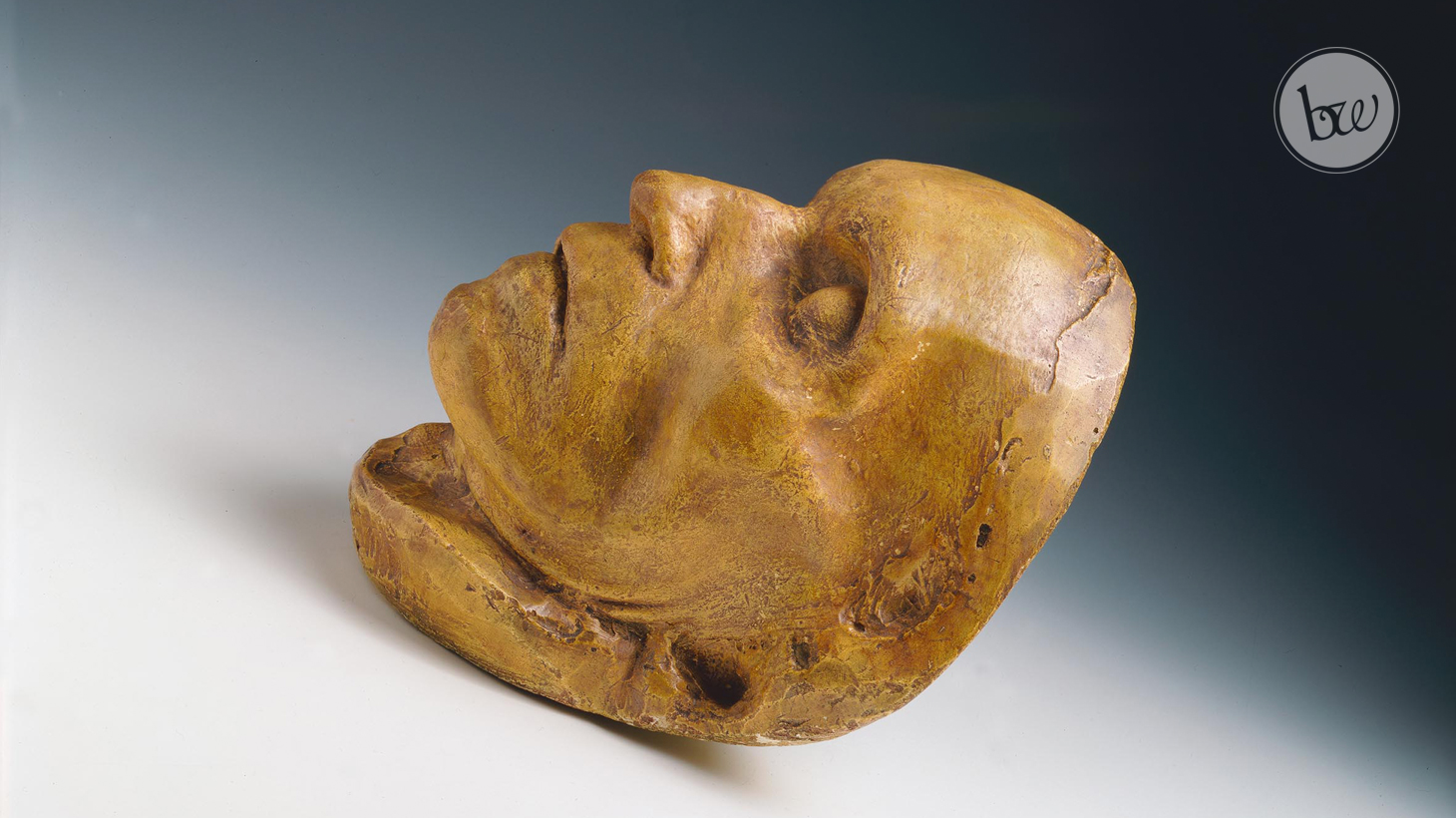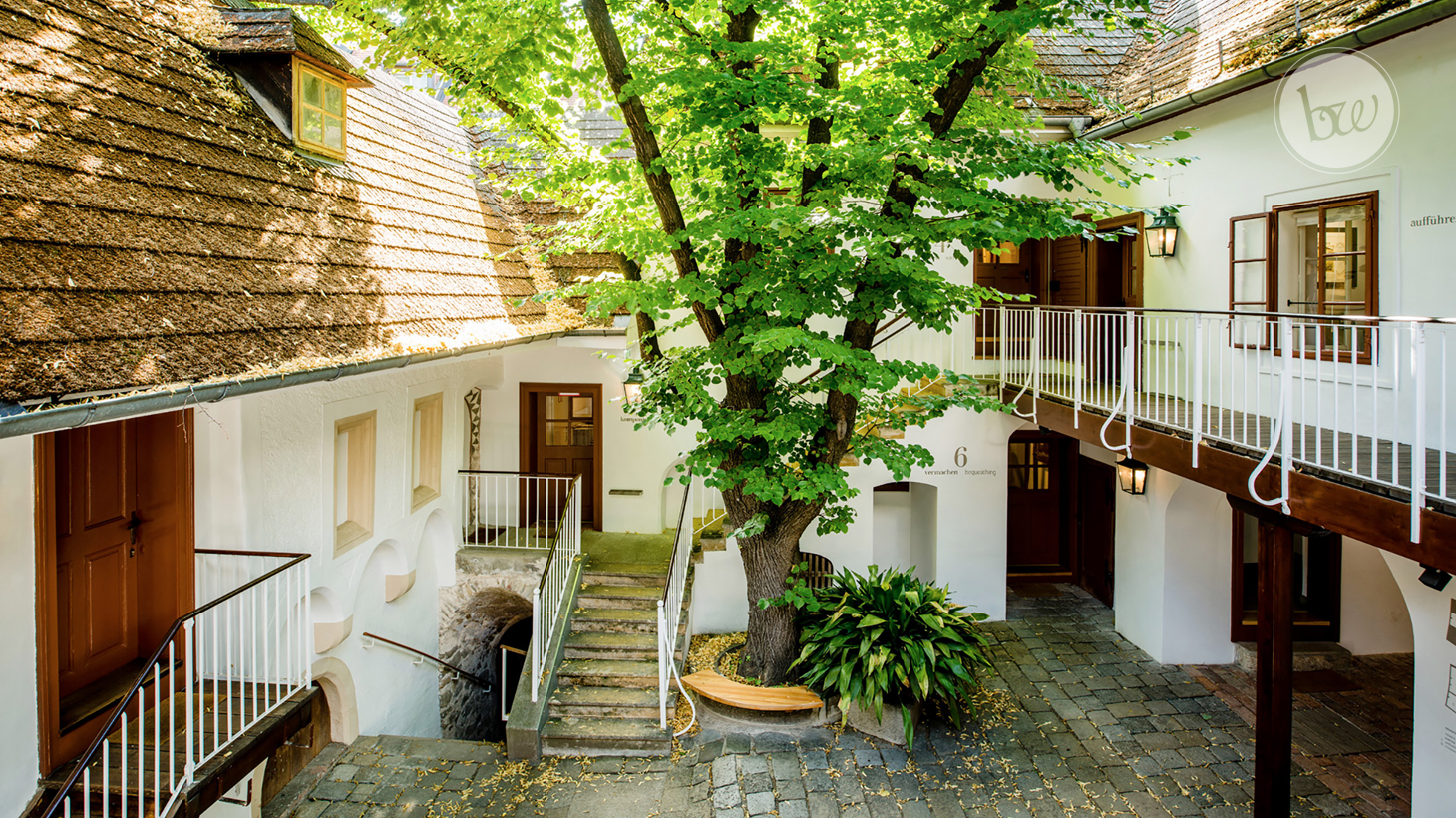Beethoven in Vienna
In contrast to Mozart, who only gained fame in the 19th century, Beethoven was celebrated as a hero during his lifetime. For contemporaries and descendants, his work becomes the epitome of music as a powerfully summarized individuality.
He is a myth, a genius with an idealistic mindset and at the same time demonic features, his life a dramatic example of a person’s path »through night to light«.
In addition to Beethoven’s work, the multifaceted, idiosyncratic personality of the composer is also fascinating. He appears to contemporaries as a genius of strength, a symbol of will and divine inspiration. In aristocratic circles, he is considered a prince of music and a rebellious Republican. But his nature is unpredictable, and he is sometimes enthusiastic, sometimes angry. He is full of creative enthusiasm, which is often inspired by love, by Eros, and cultivates intimate friendships, which he breaks down because of nothing.
The deep crises in which he plunges again and again require all his willpower and vitality. In 1802 he wrote to his brothers »[It] drove me almost to despair; a little more of that and I would have ended me life – it was only my art that held me back. Ah, it seemed to me impossible to leave the world until I had brought forth all that I felt was within me. So I endured this miserable life – truly miserable.«
As a walk, interior tour (apartment Heiligenstadt or Pasqualatihaus) or round trip possible – also as a combination.
